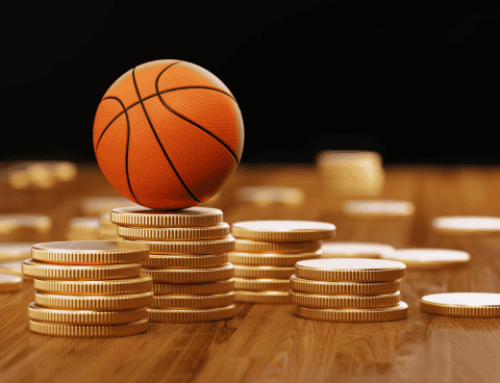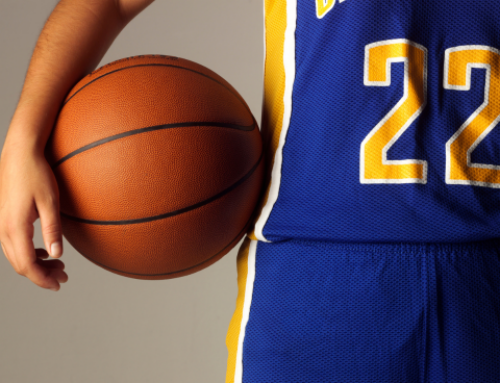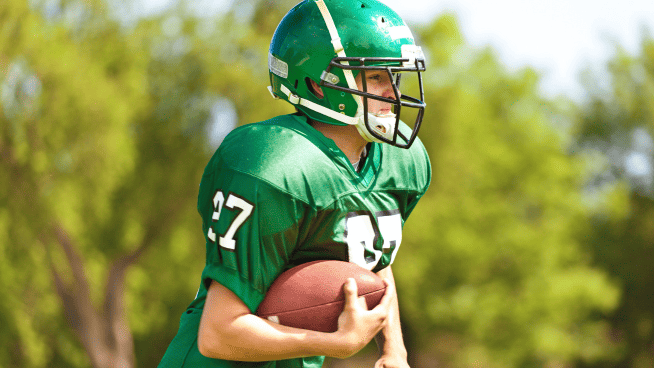How to Become the CEO of Your Own Brand
How many times have you spent four dollars for a cup of coffee at Starbucks when you could have made it for 50 cents at home? Or bought a pair of expensive brand-name shoes when a lower-priced pair would have sufficed. Or picked up a pair of costly yoga pants when you could have purchased the Target brand for a third of the price? It happens every day—proving the power of the brand.
The same applies in sports. Although some athletes have incredible talent, they are not perceived positively in the public eye because they have tarnished their brand.
Becoming the CEO of your own brand takes time, effort and dedication—and the discipline to stay off Twitter at 2:00 a.m. To become an admired brand, you have to live by the ABC’s of Branding.
Appealing. We all buy appealing brands. And the statement holds true for athletes. The most appealing athletes are the ones you would buy from or buy into (e.g., Tom Brady). You don’t have to be a supermodel, but you need to appeal to the masses.
Believable. You can’t promote a healthy lifestyle and then go out and get a DUI. You build a brand by practicing what you preach. If you promote Nike, wear Nike. If you sit in front of Congress and say you didn’t take steroids and it later comes out that you did, there’s a good chance your brand will never recover.
Consistency. Your message must be consistent. If people are buying into your brand, you must be consistent in what it represents. You can’t preach peace and love on Monday and punch an opponent on Friday.
Distinctive. There are thousands of athletes, tens of thousands actually. What makes you different? Why is RGIII so marketable? It’s more than what he does on the field. What makes your brand better than the next guy or girl?
Evolving. Your brand needs to evolve over time, consistent but changing with the circumstances. An 80-year old Michael Jordan will not be promoting 5 Hour Energy drinks. Your brand remains the same, consistent, but it evolves over time.
The most prepared players are educated about media training and personal branding before they meet with NFL scouts. Schools that provide this type of education for their athletes are giving them an advantage before they enter the “real world.”
Many schools—like Kentucky, Cal, Ball State, Montana, Michigan and others—invest time in helping their student-athletes create personal brands. They understand that if they make the investment now, it’ll pay off in the future. Athletes with a positive brand represent themselves well, and also represent their universities and the teams they were a part of. Think about how the Manti Te’o saga has affected the reputation of Notre Dame.
“If my brand isn’t strong, then I am not strong either,” says Hawaii’s Mike Edwards Jr. “My brand isn’t just represented by myself but by the people around me and the people I associate with. Anything which doesn’t represent me in a positive light I have removed from my circle, because no one will want to market anything or anyone who brings negativity to a brand.”
Learn more about how to build your brand as an athlete.
RECOMMENDED FOR YOU
MOST POPULAR
How to Become the CEO of Your Own Brand
How many times have you spent four dollars for a cup of coffee at Starbucks when you could have made it for 50 cents at home? Or bought a pair of expensive brand-name shoes when a lower-priced pair would have sufficed. Or picked up a pair of costly yoga pants when you could have purchased the Target brand for a third of the price? It happens every day—proving the power of the brand.
The same applies in sports. Although some athletes have incredible talent, they are not perceived positively in the public eye because they have tarnished their brand.
Becoming the CEO of your own brand takes time, effort and dedication—and the discipline to stay off Twitter at 2:00 a.m. To become an admired brand, you have to live by the ABC’s of Branding.
Appealing. We all buy appealing brands. And the statement holds true for athletes. The most appealing athletes are the ones you would buy from or buy into (e.g., Tom Brady). You don’t have to be a supermodel, but you need to appeal to the masses.
Believable. You can’t promote a healthy lifestyle and then go out and get a DUI. You build a brand by practicing what you preach. If you promote Nike, wear Nike. If you sit in front of Congress and say you didn’t take steroids and it later comes out that you did, there’s a good chance your brand will never recover.
Consistency. Your message must be consistent. If people are buying into your brand, you must be consistent in what it represents. You can’t preach peace and love on Monday and punch an opponent on Friday.
Distinctive. There are thousands of athletes, tens of thousands actually. What makes you different? Why is RGIII so marketable? It’s more than what he does on the field. What makes your brand better than the next guy or girl?
Evolving. Your brand needs to evolve over time, consistent but changing with the circumstances. An 80-year old Michael Jordan will not be promoting 5 Hour Energy drinks. Your brand remains the same, consistent, but it evolves over time.
The most prepared players are educated about media training and personal branding before they meet with NFL scouts. Schools that provide this type of education for their athletes are giving them an advantage before they enter the “real world.”
Many schools—like Kentucky, Cal, Ball State, Montana, Michigan and others—invest time in helping their student-athletes create personal brands. They understand that if they make the investment now, it’ll pay off in the future. Athletes with a positive brand represent themselves well, and also represent their universities and the teams they were a part of. Think about how the Manti Te’o saga has affected the reputation of Notre Dame.
“If my brand isn’t strong, then I am not strong either,” says Hawaii’s Mike Edwards Jr. “My brand isn’t just represented by myself but by the people around me and the people I associate with. Anything which doesn’t represent me in a positive light I have removed from my circle, because no one will want to market anything or anyone who brings negativity to a brand.”
Learn more about how to build your brand as an athlete.
RECOMMENDED FOR YOU
Create A Free Recruiting Profile Today!
CaptainU helps athletes & parents not only be proactive but also to manage and take control of their entire recruiting journey.











